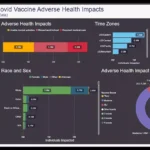President Donald Trump has initiated the closure of diversity, equity, and inclusion (DEI) offices across all federal agencies in a sweeping move that has ignited a national debate. This action, taken within the first 24 hours of his presidency, marks a significant shift in federal policy as the administration seeks to dismantle affirmative action programs and re-evaluate diversity initiatives.
Federal employees in DEI roles have been instructed to seek other employment, and the administration's stance on DEI has stirred discussions on its potential impacts on business productivity and organizational efficiency.
A New Era in Federal Policy
On January 21, 2025, President Trump issued a directive to all federal agencies, mandating the closure of DE offices. This move aligns with his broader agenda to streamline government operations and reduce what he perceives as bureaucratic inefficiencies. The Office of Personnel Management (OPM) instructed agency heads on the procedures to dismantle these offices promptly and in immediate compliance.
The Trump administration’s decision comes amid a growing discourse on the effectiveness of DEI programs. Critics argue that such initiatives have often increased organizational polarization and inefficiencies. By eliminating DEI offices, the administration aims to foster a more merit-based system prioritizing skills and competencies over demographic factors.
The Impact on Business Productivity
The closure of DEI offices is not just a federal issue; it has implications for businesses nationwide. Many companies have adopted DEI programs to create more inclusive work environments. However, some business leaders and analysts suggest that these initiatives can sometimes lead to unintended consequences, such as divisiveness or a focus on quotas rather than qualifications.
By shifting away from DEI, businesses may find new opportunities to enhance productivity. A merit-based approach could encourage innovation and competition, as employees strive to excel based on their abilities rather than fulfilling diversity metrics. This could create a more dynamic and efficient workforce, driving economic growth and competitiveness.
Expert Opinions and Analysis
Experts are divided on the potential outcomes of dismantling DEI programs. Proponents argue that the move will lead to a more equitable and efficient system. They contend that DEI initiatives have sometimes resulted in tokenism or reverse discrimination, thereby undermining the very goals they sought to achieve.
When focusing on individual merit, organizations can create environments that reward talent and hard work, fostering a culture of excellence.
The Broader Implications
The Trump administration’s decision to target DEI programs extends beyond government offices. It signals a potential shift in how diversity is approached in both public and private sectors. Businesses may feel encouraged to re-evaluate their DEI strategies, weighing the benefits against the potential challenges.

This policy change may influence public perception and cultural attitudes toward diversity. As the nation grapples with these changes, the conversation around DEI will likely continue to evolve, with stakeholders from various sectors contributing to the debate.
Looking Ahead
As the Trump administration moves forward with its agenda, the effects of dismantling DEI offices will unfold over time. The initial reactions suggest a divided response, with some applauding the focus on meritocracy and others expressing concern over the potential loss of diversity and inclusion efforts.
The broader implications for businesses and organizations will depend on how they adapt to this new landscape. Companies may need to balance fostering a diverse workforce with maintaining productivity and efficiency. As the debate continues, the focus will remain on finding effective strategies that support inclusion and organizational success.
The end of DEI programs in federal agencies marks a significant policy shift with potential ramifications for businesses and society. As the nation navigates these changes, the conversation around diversity, equity, and inclusion will remain critical, shaping the future of work and organizational culture.

Carl Riedel is an experienced writer and Open Source Intelligence (OSINT) specialist, known for insightful articles that illuminate underreported issues. Passionate about free speech, he expertly transforms public data into compelling narratives, influencing public discourse.













